Discover Beyond Asian: Stories of the Third Culture
Beyond Asian: Stories of the Third Culture

 Beyond Asian: Stories of the Third Culture
Beyond Asian: Stories of the Third Culture
Author: Bear Radio
Subscribed: 1,203Played: 5,629Subscribe
Share
© Copyright Bear Radio
Description
The Third Culture is what emerges at the intersection between your culture of origin, and the other cultures by which you’ve been shaped.
Beyond Asian is a place for stories of global nomads with Asian roots, brought up in diversity.
Together, we explore the interplay of our pasts with our presents, and our relationships with the multiple cultures we move in.
These are more than conversations about Asian identity - they’re portraits of whole people - what keeps them up at night, what their hearts long for, and the impact they hope to have on their communities.
I’m your host, Sen Zhan, a Third Culture Kid born in China, raised in Canada, and currently based in Berlin. This series is a first step towards making peace with my own Asian background, and it’s my hope that other Third Culture Asians will hear themselves reflected in our stories.
New episodes on Sundays, every 2 weeks.
Beyond Asian is a place for stories of global nomads with Asian roots, brought up in diversity.
Together, we explore the interplay of our pasts with our presents, and our relationships with the multiple cultures we move in.
These are more than conversations about Asian identity - they’re portraits of whole people - what keeps them up at night, what their hearts long for, and the impact they hope to have on their communities.
I’m your host, Sen Zhan, a Third Culture Kid born in China, raised in Canada, and currently based in Berlin. This series is a first step towards making peace with my own Asian background, and it’s my hope that other Third Culture Asians will hear themselves reflected in our stories.
New episodes on Sundays, every 2 weeks.
27 Episodes
Reverse
Welcome to the latest episode of the Beyond Asian podcast! We have something truly special in store for you today. This live panel interview takes us on a thought-provoking journey with a panel of 3 Asian-German women at the renowned Pod Fest Berlin, moderated by Sen.Get ready to dive deep into the fascinating world of dual cultural identities as our panelists share their personal experiences and insights. From navigating societal and familial expectations to unraveling the complexities of their individual journeys, these incredible women leave no stone unturned.Through heartfelt storytelling, they shed light on what it feels like to be an outsider and the unique challenges of living between two cultures. Their mixed or multi-ethnic identities have shaped their lives in profound ways, influencing their relationships with their families and the world around them.But it doesn't stop there! Our panelists also delve into the differences between living in Canada and Germany, offering a fresh perspective on the diverse experiences of Asian communities across the globe. They emphasize the importance of having open conversations to bridge understanding between generations, especially in an era of fragmentation.So, whether you share the experience of being Asian-German yourself, or you're someone with a similar background, or simply curious about the intricacies of cultural identity, this episode is a must-listen. Join us as we explore the rich tapestry of stories and experiences that make up the lives of these remarkable individuals.Tune in now and be a part of this important conversation that reminds us of the power of dialogue and understanding in a world that often feels divided. Let's come together, celebrate our differences, and create a more inclusive and empathetic society.*Panelists: Yun Huang: Actor, writer, filmmakerNga Orstadius-Bui: Host of Vietkieu2.0 PodcastMinh-Ha Nguyen: Cultural ResearcherModerator: Sen Zhan: Host of Beyond Asian*Timestamps:Introduction and intentionality (00:00:17)Exploring the Asian German experience (00:01:24)Introducing the panelists (00:02:35)The Energy of Conversations (00:11:31)Navigating Name Pronunciation (00:12:26)Catering to Mainstream Culture (00:14:32)The Vietnamese Upbringing (00:22:19)Identity Crisis and Cultural Differences (00:23:19)Navigating Cultural Contradictions (00:27:22)The struggle with parental expectations (00:34:16)The process of asserting independence (00:35:57)The evolution of relationships with family (00:38:04)The Asian German Experience (00:46:59)Living in Canada vs. Germany (00:49:02)Parents Listening to Podcasts (00:52:26)The technical glitch (00:56:22)Continuing the conversation (00:56:22)Supporting the show (00:57:50)
Welcome to a special episode of "Asian and Amplified." You'll be joining a lively panel conversation delving into the world of podcasting and the unique experiences of our panelists within Berlin's vibrant Asian community.Panelists:Natalina Pereira: Host of "Asia is Not a Country"Passionate podcaster exploring the diverse cultures and stories within Asia. Her podcast, "Asia is Not a Country," has gained recognition for its insightful narratives.Jing-Jing Hu: Host of "You Rice Me Up"Entrepreneur and podcaster sharing stories and experiences related to European Asian identity, culture, and personal growth.Liwen Qin: Host of "Seahorse Planet"Feminist perspective through her Chinese-language podcast. Her unique approach to storytelling has captivated audiences worldwide.Moderator:Sen Zhan: Host of "Beyond Asian: Stories of the Third Culture"Skilled storyteller delving into the experiences of individuals living at the intersection of cultures.Questions from Audience:What's been your revenue from podcasting? How has podcasting impacted your financial landscape?As your podcast grows, a persona often develops around it. How do you manage and evolve this persona to resonate with your audience?Can you share your toughest experience with podcast guests? How did you navigate and resolve challenging situations with guests?What are models for intercultural belonging that you've encountered or explored through your podcasting journey? How can different cultures come together and thrive in today's interconnected world?This event was part of Podfest Berlin, October 13-15, 2023, at Noisy Rooms in Berlin.*Timestamps: The question of hopes and nerves (00:00:00) The hosts discuss the questions they hope to receive and their nervousness about the panel discussion.Curiosity about podcast preferences (00:01:04)Qing expresses curiosity about what listeners pay attention to in podcasts and the format of storytelling they enjoy.Empowerment of telling personal stories (00:02:55) Natalia talks about the empowering aspect of creating a podcast and being able to tell one's own story. She also mentions her nervousness about her podcast still being in production after two years.The journey to podcasting (00:11:43) The hosts discuss their personal backgrounds and how they got into podcasting, including their initial hesitations and inspirations.Creating a platform for Asian Europeans (00:12:51) The hosts talk about the lack of English-speaking podcasts about the experiences of Asian Europeans and the importance of highlighting their stories and diversity.Finding the courage to share (00:19:19) The hosts discuss the process of vulnerability and how it takes strength to open up and share personal stories, particularly in the context of feminism and women's empowerment.The process of finding comfort in sharing personal stories (00:23:57) The speakers discusses their hesitancy in publicly discussing personal experiences, particularly regarding family dynamics, and the importance of finding comfort in sharing vulnerable stories.The challenge of being outspoken in the Chinese context (00:24:47) The speakers admires those who dare to challenge norms and speak out in the Chinese context, highlighting the potential repercussions and censorship they may face.The importance of vulnerability in podcast interviews (00:27:58) The speaker emphasizes the significance of vulnerability in podcast interviews, both from the host and the guest, to create a genuine connection and allow for deeper conversations.The programming journey (00:34:51) Liwen discusses her interview with a former factory worker turned programmer and her own personal growth in expressing emotions.The impact of colonialism (00:36:11) Sen and Liwen talk about the lack of neutral perspectives in storytelling and the influence of colonialism on their own creative processes.Monetary revenue and creative integrity (00:39:15)Sen and Qing share their experiences with podcasting expenses, revenue, and their thoughts on maintaining creative integrity in the pursuit of profit.The persona in podcasting (00:50:18)Discussion on how podcast hosts manage the persona they create in their shows and the challenges they face in representing themselves authentically.Finding your voice (00:51:44)Exploration of the struggle to convey personality and authenticity in podcasting and the importance of letting one's true self shine through.Perception and reflection (00:56:52)Reflection on the process of creating a podcast persona and how the audience's perception and feedback can shape the host's understanding of their own offering.The worst interview experiences (00:59:34)Podcast hosts share their worst moments in podcasting, including long-winded guests and technical issues.Dealing with technical issues (01:02:04)Hosts discuss technical difficulties they encountered, such as empty files and audio quality problems.Handling haters (01:07:50)The hosts discuss how they handle negative feedback and haters, viewing it as a sign of success.The Fear of Criticism (01:08:49)Discussion about the fear of criticism and hate in the podcasting world, and the importance of not letting it deter you.Dealing with Haters (01:10:15) The hosts share their experiences with receiving hate and how they handle it, including blocking and ignoring negative comments.Finding Balance in Interculturalism (01:16:27) Exploring how people with intercultural backgrounds find balance and acceptance, including embracing their origins and finding supportive communities and role models.Living Between Cultures (01:20:03) The speaker discusses the unique opportunity of living between cultures and how it allows individuals to recombine themselves in different ways.Understanding Ourselves (01:21:41)The speaker talks about the creative process of understanding who we are and how it is a continuous journey for everyone, especially for those who grow up between cultures.Community Building and Future Ideas (01:24:36) The speaker invites the audience to write down any questions, workshop ideas, or suggestions for the future of the podcasting community, emphasizing the importance of building relationships and helping each other.
In this week's episode, we dive into the complex process of healing and improving relationships with parents, particularly in Asian cultures. Our new Ask Me Anything segment features psychoanalyst Dr. Salman Akhtar's article on "A Third Individuation, Immigration, Identity, and the Psychoanalytic Process," providing a resource for third culture individuals to understand themselves better.Read "A Third Individuation", by Dr. Salman Akhtar here: https://immaterial.sfai.edu/features/here-and-yet/documents/A-THIRD-INDIVIDUATION-IMMIGRATIONidentity-and-the-psychoanalitical-process.pdfBecome a Patron with benefits like: Shoutouts on New Episodes, Ask a question on the Ask-me-anything segment, and access to uncut episodes!www.patreon.com/beyondasianIn today's episode featuring Johnson Hsieh, we explore the concept of third individuation and the importance of unblocking love, tearing down internal barriers that prevent true connection. We delve into the challenges of evolving relationships with parents, examining our own perceptions and biases, and setting boundaries. We emphasize the importance of communication, understanding, and forgiveness in relationships, highlighted by our personal experiences and those of our guests. Join us as we explore the ongoing effort of trying to improve relationships by being vulnerable, expressing oneself, and actively listening.Don't forget to support us by becoming a patron on patreon.com/beyondasian. Tune in now to Beyond Asian: Stories of the Third Culture, where we believe that understanding and empathy towards others are vital to building meaningful relationships with our Asian parents.Topics- A Third individuation in immigrants- Kanye West's "everything is the same"- Understanding and empathy towards parents- Unblocking love to improve relationships- Navigating cultural differences and setting boundaries- Understanding interrupting in communication- Therapy and exploring emotions- Importance of open communication- Accepting challenges in infinite game- Finding progress and hope in small shifts- Impact of self-reflection and self-acceptanceNotable Quotes"Immigration from one country to another is a complex and multifaceted psychosocial process with significant and lasting effects on an individual's identity.""The idea that the individuation process may never quite stop happening for third culture people invites a continuous process of creativity and of reinvention.""Grief is love with nowhere to go. It's love that has had nowhere to go for decades, and now it can finally flow."KeywordsImmigration process 2. Dr. Salman Akhtar 3. Psychoanalytic process 4. Third individuation 5. Psychosocial development theory 6. Third culture individuals 7. Identity 8. Parental backstory 9. Protection 10. Relationship with parents.Episode OutlineIntroduction and explanation of Ask Me Anything segment [00:00:01]Question from patron William on suggested reading materials for third culture individuals [00:00:28]Johnson's mom's backstory and early life struggles [00:10:34]Johnson's mom's experiences as a child [00:11:37]Johnson''s approach to maintaining a relationship with his parents despite interruptions [00:29:41]Johnson and his mom's evolving relationship and her positive affirmations towards him [00:36:04]Johnson's pivotal moment with his therapist and impact on his relationship with his mom [00:40:35]Johnson's infrequent interrupted conversations with his mom and documenting them on Twitter. [00:43:32]
Welcome to Beyond Asian: Stories of the Third Culture, where we delve into the importance of community and communication in difficult experiences, particularly in the context of familial relationships. In this two-part interview series, we speak with Johnson Hsieh about their respective parental journeys, exploring the challenges and rewards of reconnecting with family after years of distance. But that's not all - we also dive into the ethical and legal concerns surrounding the use of AI voice generators in voiceover work. Podcast host Sen Zhan, a moonlighting voice actor, shares her experience with a small company that may be using her voice to train their AI without her consent. We discuss important questions about ownership, transparency, and compensation for artists in this field.Throughout the podcast, we explore the experiences of Asian individuals dealing with anxiety and attachment in their relationships with their parents. We also highlight the importance of evolving relationships, setting boundaries, and the challenges of discussing difficult topics with family members.Join us as we celebrate the power of community and communication in navigating life's difficult moments. Tune in to Beyond Asian: Stories of the Third Culture, available now on all major podcast platforms.Become a Patron with benefits like: Shoutouts on New Episodes, Ask a question on the Ask-me-anything segment, and access to uncut episodes!www.patreon.com/beyondasianTopics- Two-part interview series- Impact of AI voice generators - Relationship with Asian families - Dealing with distance from family - Importance of taking risks - Strained relationships with parents - Experience of Asian individuals with anxiety - Attachment versus love in Asian families - Trans cultural trauma - Catch-up phase with parents - Reconnecting with family and heritage - Evolving relationships with parents - Importance of setting boundaries - Host's upcoming visit from parents - Challenges of discussing social justice - Challenges in communicating with parents - Importance of community in difficult experiencesNotable Quotes"I never considered my relationship with my family as not important, but I think that there were parts of me that wanted to believe that I didn't need that importance.""I want to slightly challenge this notion of I set a boundary, and you must respect my boundary because it doesn't work that way with Asian parents.""It's saying, hey, dad, I can't talk about this anymore because I'm too tired. And if I force myself to keep talking about it, I'm going to resent you."Keywords: parental relationships, family, pandemic, regrets, boundaries, love, internal work, AI voice generator, raw interview material, residency, Berlin, Calgary, Taiwan.Episode Outline Shout out to patrons [00:00:00]Introduction to interview series with Johnson Hsieh [00:00:48]Discussion of importance of relationship with parents [00:11:30]Pandemic amplifying importance of relationships and regret [00:12:00] Celebrating setting boundaries in interacting with family [00:31:14]Reflecting on making changes to relationship with parents and upcoming visit [00:39:00] Anticipating challenges and conversations with parents during visit [00:42:52]
On International Women's Day, a narrated story about Mongolia's most renowned queen, Mandukhai Khutun, who lived from 1448-1510, and who united the warring Mongolian tribes 200 years after Genghis Khan. Then, a sobering look at the state of women's rights around the world today, and an invitation to keep pushing for the change we all need. NotesInterested in producing for Beyond Asian? We are looking to expand our production team!Details here:https://www.notion.so/senzhan/Beyond-Asian-Podcast-Seeks-Producer-9b7e3f628c5e4c9eabc4c9986da8e7b7*News sourcesIt’s International Women’s Day. How did women’s rights fare this year?https://www.washingtonpost.com/world/2023/03/08/international-womens-day-iran-afghanistan-abortion/UN secretary-general says women’s right are under threathttps://apnews.com/article/un-gender-equality-womens-rights-c66860dda2e845b3ce27b536611d7814Women March To Defend Rights Across Globe Mark Women's Dayhttps://www.ndtv.com/world-news/women-march-to-defend-rights-across-globe-mark-womens-day-3844366*CreditsTough Mothers, Amazing Stories of History's Mightiest Matriarchs, by Jason Porath: https://www.goodreads.com/book/show/35887203-tough-mothersEpisode Art produced by Mid-journey
The month of May is Asian-American Pacific Islander month, but for those of us who might not see ourselves in these adjectives, I thought we could expand the description to TCA month - Third Culture Asian month!So, for Third Culture Asian month, I’d like to share with you 3 back-to-back episodes that together frame the topic of the healing of intercultural and intergenerational conflict in the global asian diaspora community. In the last of this 3-part series, we’re speaking with Dr. Julian Xue to explore the complexity of the arrival space for Asian immigrants in the West. We’ll hear his take on what happens at the intersection between a Confucian, Asian experience of reality, and one informed by Western theories of mind, and what this means for the treatment of mental health difficulties.*To learn about Julian's work in mental health, go tohttps://www.liberaclinic.com/our-teamTo hear his first episode on Beyond Asian, see Season 1, Episode 9a and b*To support this show as a patron, go topatreon.com/beyondasian.com*To leave me a voice message about this episode, go to speakpipe.com/beyondasian
The month of May is Asian-American Pacific Islander month, but for those of us who might not see ourselves in these adjectives, I thought we could expand the description to TCA month - Third Culture Asian month!So, for Third Culture Asian month, I’d like to share with you 3 back-to-back episodes that together frame the topic of the healing of intercultural and intergenerational conflict in the global asian diaspora community. On the second of this 3-part series, we’ll hear from Iris Chen, Chinese-American author of the book “Untigering: Peaceful Parenting for the Deconstructing Tiger Parent”, and the different approach that she takes to parenting, and how some traditional Asian values can be better understood from a more holistic perspective. *To learn about the Untigering movement, and to read Iris' book, go to untigering.com*To support this show as a patron, go topatreon.com/beyondasian.com*To leave me a voice message about this episode, go to speakpipe.com/beyondasian
The month of May is Asian-American Pacific Islander month, but for those of us who might not see ourselves in these adjectives, I thought we could expand the description to TCA month - Third Culture Asian month!So, for Third Culture Asian month, I’d like to share with you 3 back-to-back episodes that together frame the topic of the healing of intercultural and intergenerational conflict in the global asian diaspora community. On the first of this 3-part series, Chinese-Canadian trauma recovery coach Sherry Yuan Hunter shares what she’s seen from having worked intimately with a range of Asian clients around the world to help understand and heal the root causes of intergenerational trauma. *To learn about Sherry's Trauma Recovery Coaching, go tosandwichparenting.com*To support this show as a patron, go topatreon.com/beyondasian.com*To leave me a voice message about this episode, go to speakpipe.com/beyondasian
By 17, Third Culture Kid Zac Steer had traveled to nearly 60 countries, and had lived for several years in China. What is returning to Canada like after such a journey? Check out this featurette of Third Culture Youth, on Beyond Asian
Welcome back for Season 2!After a long pandemic-induced break, we're back today with Hansol Seung, a Korean-German musician, to hear how he transformed an aggression on the street into a punkrock song. The single tells the story of anti-Asian racism from the perspective of Hansol (he/him), who is of Korean descent. SHORELINE teamed up with Asian-American Singer-Songwriter KOJI (they/them) to work on the song. KOJI was born in Peixtin (Paxton) (or Harrisburg) PA and just recently came back from a long hiatus, releasing their most recent single “To Carry (On and On)”- a song about their experience as a member of the Asian diaspora, facing white supremacy and the movements to eradicate the conditions that create violence. *SHOWNOTESKonichiwa Lyrics:Start another conversation about the place where I was born(but where are you really from?)I don’t really understand why you want to be in controlTell another joke that I’ve heard about a thousand times beforeyour fingers stretch your eyes to mock mineyou think like a dinosaur I don’t know how your head’s so old but you’re still youngnot in a good way, it’s all wrong your excuse and words mean nothingyour ideas were broken by the test of timeshout “konichiwa” and I swear one more timeand I will lose my shit and fuck you up Okay I know, you’ve been asking out of interestlow expectations, you compliment my languagemaybe at some point you should reflect on your choiceto fetishize my skin(you speak so well)you’re just a clone of an older speciesyou will go on and praise tradition I don’t know how your head’s so old but you’re still youngnot in a good way, it’s all wrong your excuse and words mean nothingyour ideas were broken by the test of timeshout “konichiwa” and I swear one more timeand I will lose my shit and fuck you upstray for more, stray for loveI know you’re smart at heartshed the skin, it’s embarrassingdecenter, dismantle, abolish*SHORELINE’s website: shorelineband.comInstagrams: Band: @shoreline_band Hansol: @meatfreeyouthKOJI: @kojisaysalohaLabel Shoreline: @end_hits_recordsLabel KOJI: @getbetterrecords*WOC Podcasters Insiders: https://membership.wocpodcasters.co/bundles/insiders-membership?ref=9d91dc
Dear Listeners, this is a bonus episode for all of you on a topic close to my heart: Psychedelics.I was invited by Frank and Cynic to guest on their podcast, No Stone Unturned, to talk about my experiences with psychedelics, the differences between the classical psychedelics: LSD, Psilocybin Mushrooms, and Ayahuasca, how to prepare for a psychedelic journey, whether psychedelics are for everyone, and much more! Enjoy this fun bonus episode, and stay tuned for the next regular episode on Beyond Asian!
Part 2 of Episode 9 with Julian, the only Chinese-speaking psychiatrist in a large Canadian city will cover:- A psychiatric perspective on the trauma of immigration- The role of extended history on the Asian continent in shaping the mindsets of present-day immigrants - The shortcomings of both Eastern and Western frameworks in specifying the conditions for human flourishing- A helpful perspective on the role of shame in relation to the familyExtending a hand to anyone struggling with mental health, and especially at the brink of suicidality
The Tiananmen Square Massacre of 1989, a fractured childhood with memory loss, and recovering from the trauma of immigration. In Episode 9, Julian, the only Chinese-speaking psychiatrist in a large Canadian city weighs in on how the clashing of Western ideals with Confucian philosophy is at the heart of mental health issues amongst Asian immigrants and their families.
How did growing up in a Catholic-Muslim family lead to the discovery of sexual freedom for a young Indonesian woman? In Episode 8, Dewi tells the story of how she discovered her bisexuality despite a strict family and societal setting, and the freedoms she found upon leaving Indonesia.
TL;DL?- Episode 8 will be released in the week of July 26, 2020 - this episode was workshopped with the help of Bear Radio, and it'll be even better than the ones you've heard before!- Beyond Asian is partnering with and will be hosted by Bear Radio, Berlin's English Podcasting Network- Musical Interlude: "Hisen" by the late Susumu Yokota- See you in Episode 8!
What are Asians doing to find cultural fit in the online dating world? In Episode 7, I’m speaking with Hanmin Yang, the CEO of Alike - a video-based dating platform designed with Asians of all backgrounds in mind. Hanmin describes his long journey of self-understanding and healing from a devastating divorce in the creation of this platform, and how he hopes to help Asians find meaningful connections with each other. Sign up to be a beta tester of Alike: www.alike.datingInstagram: @alike.datingTranscript of this episode on www.beyondasian.com


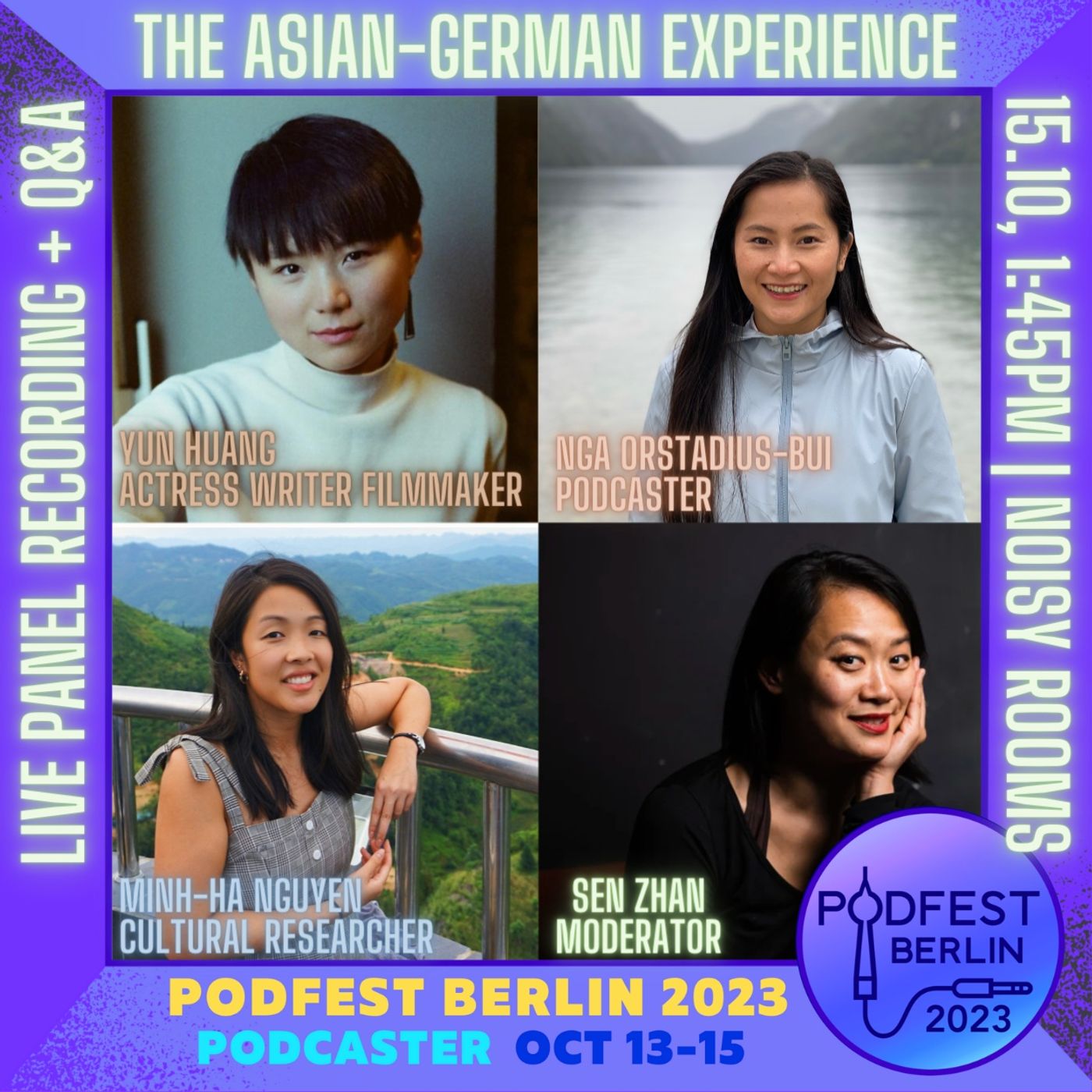
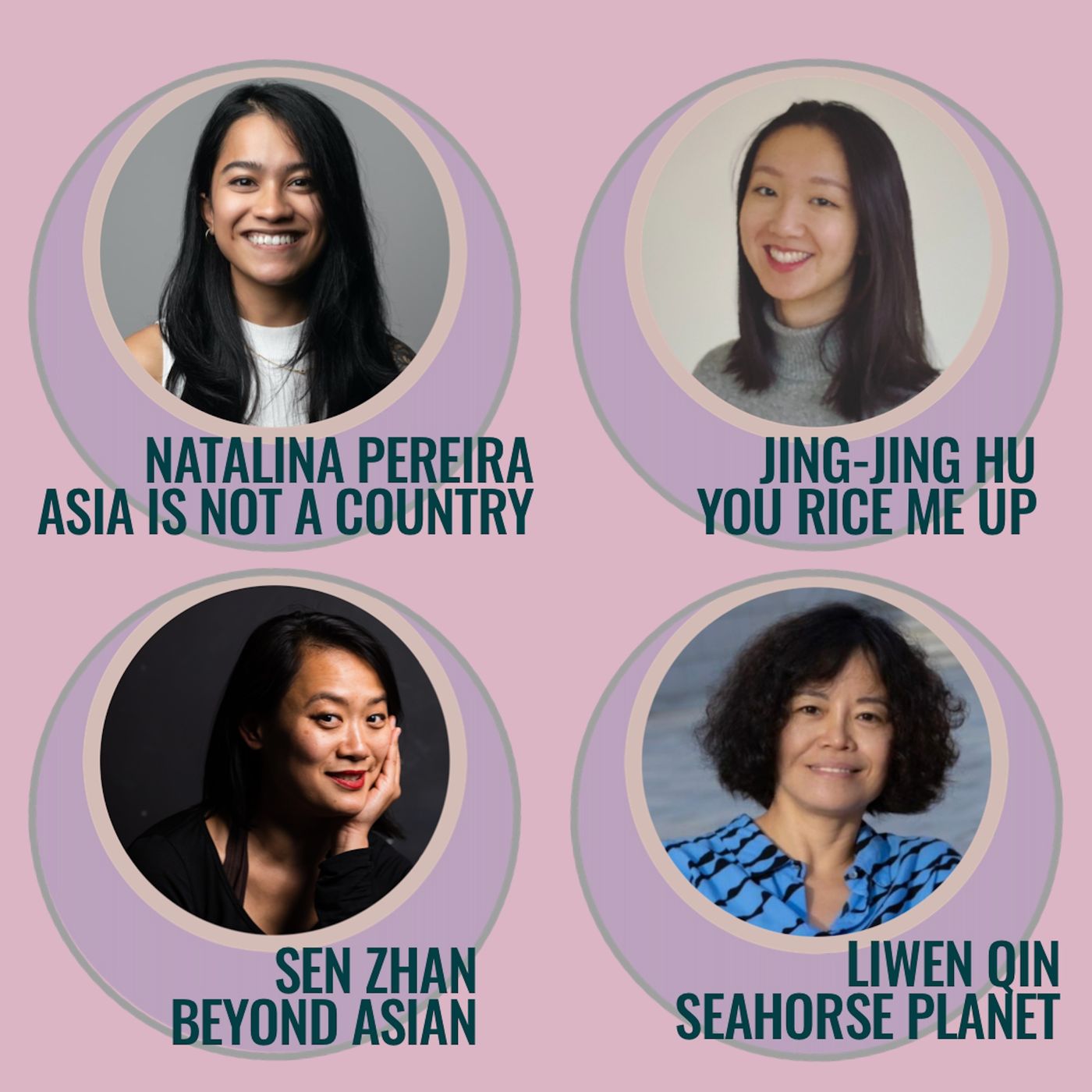
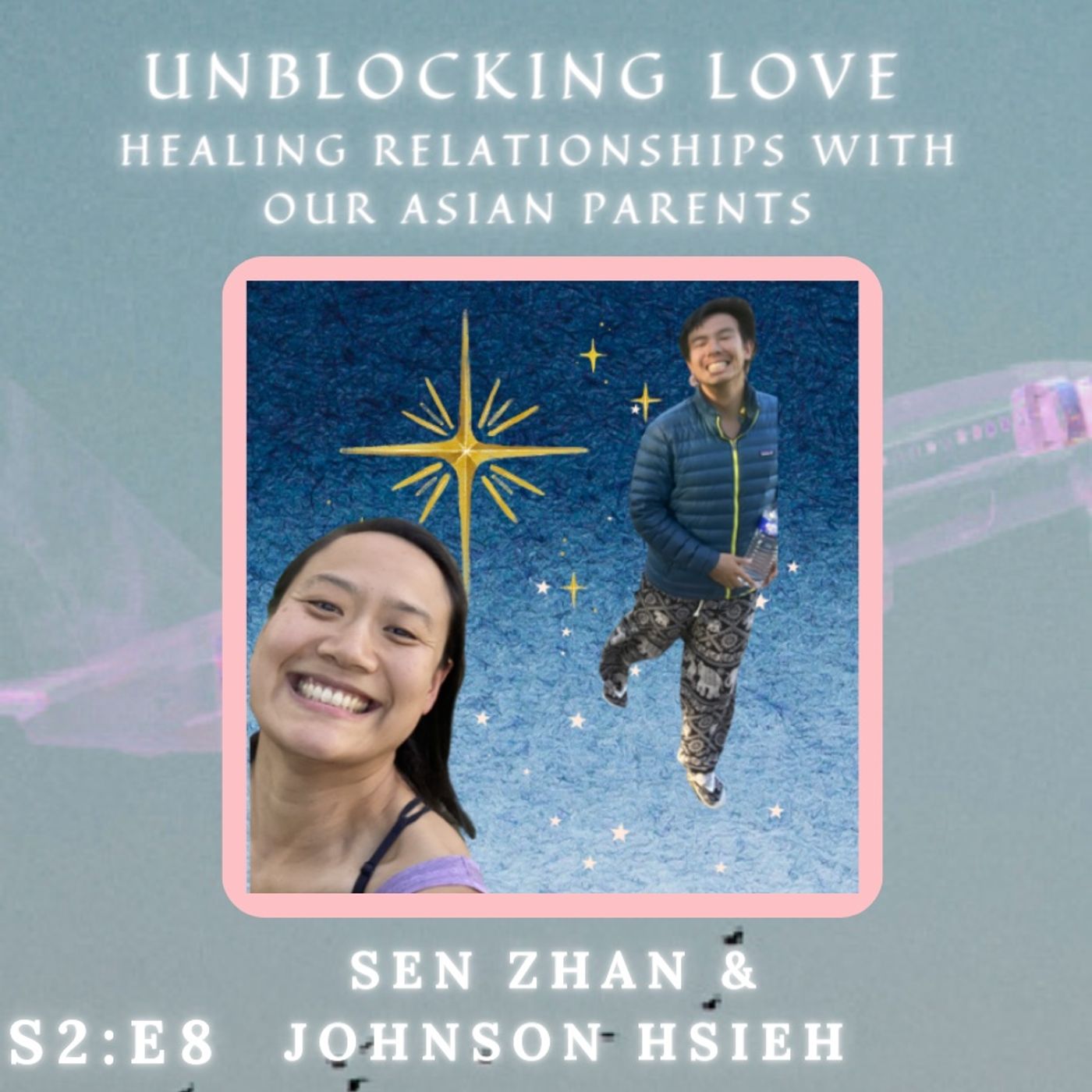
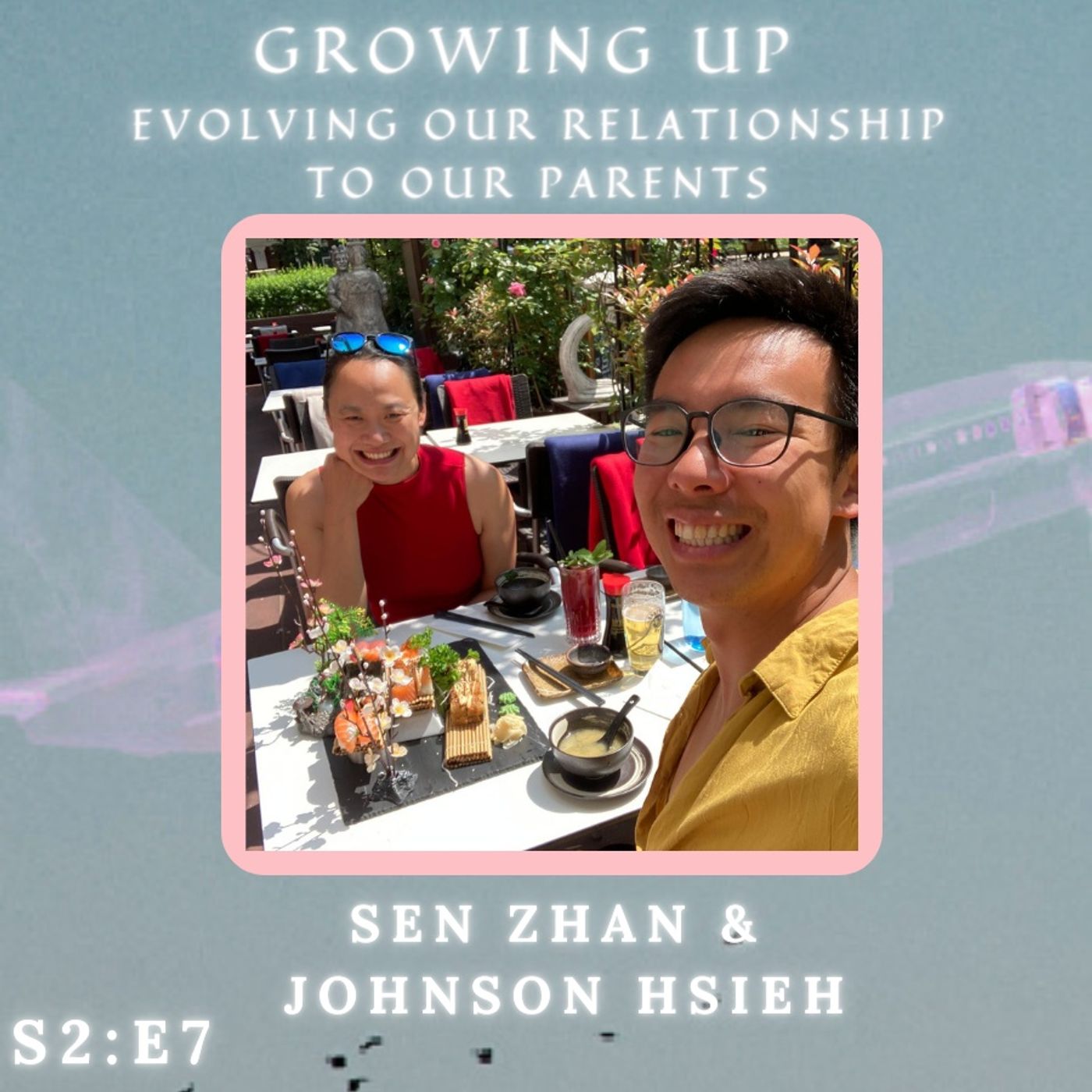
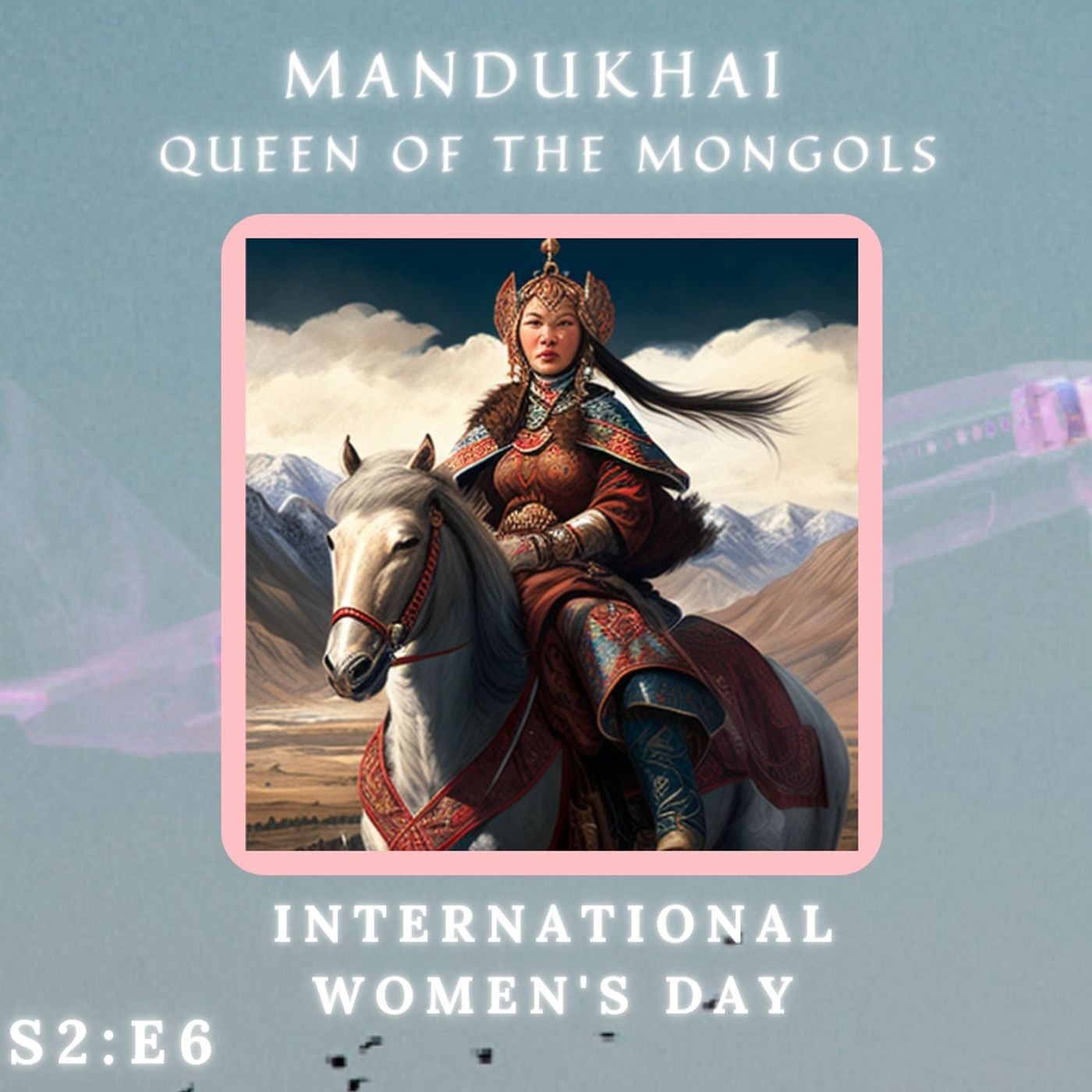
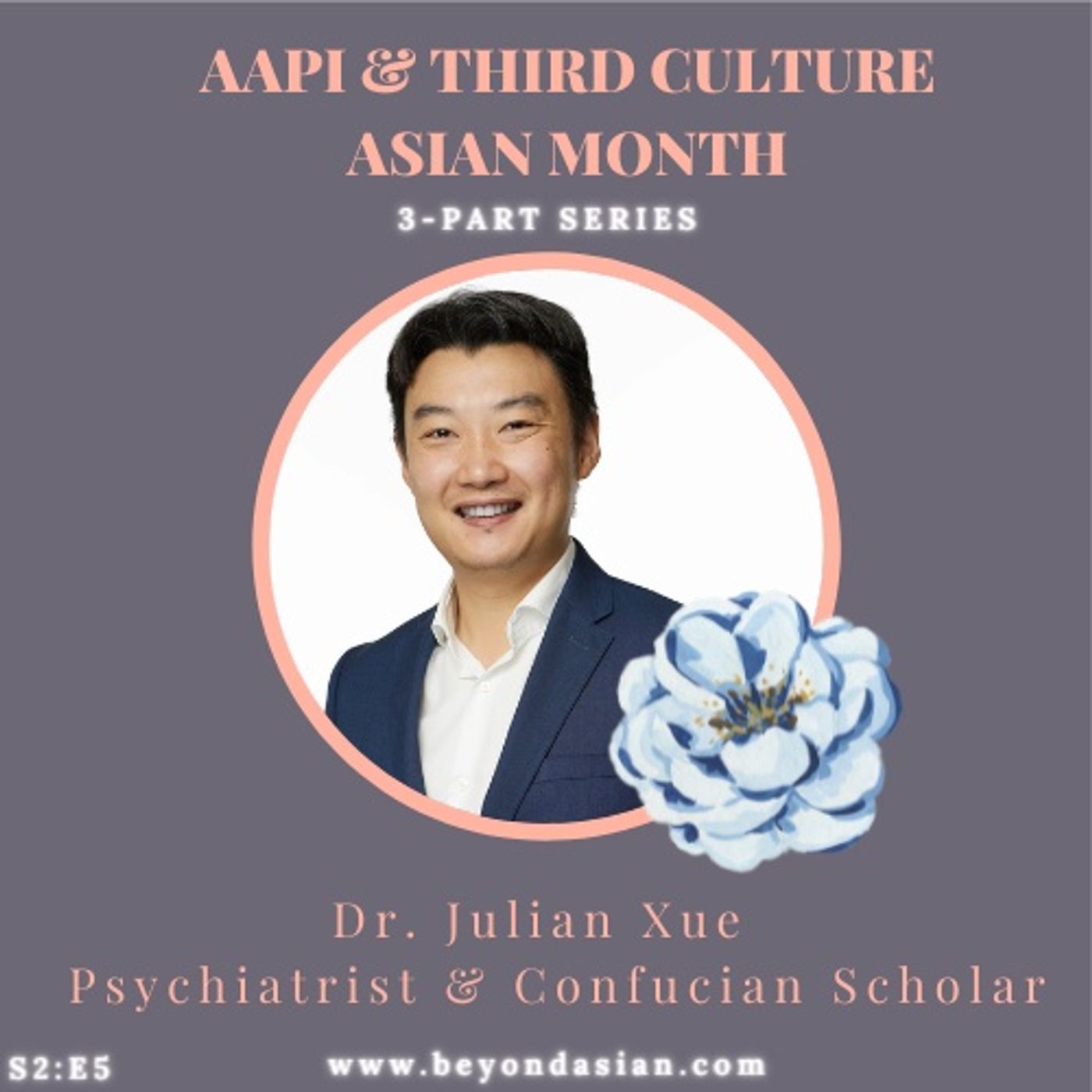
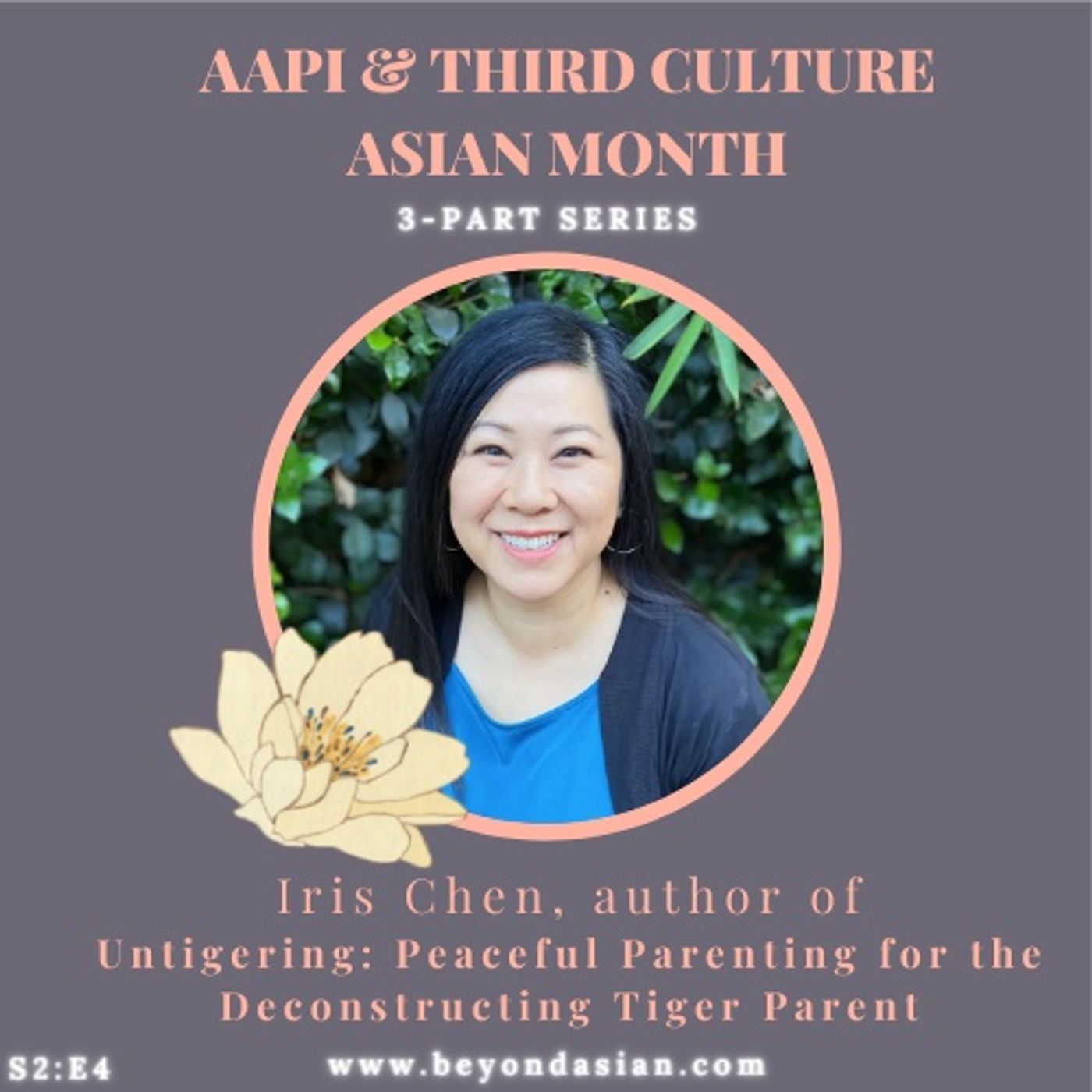
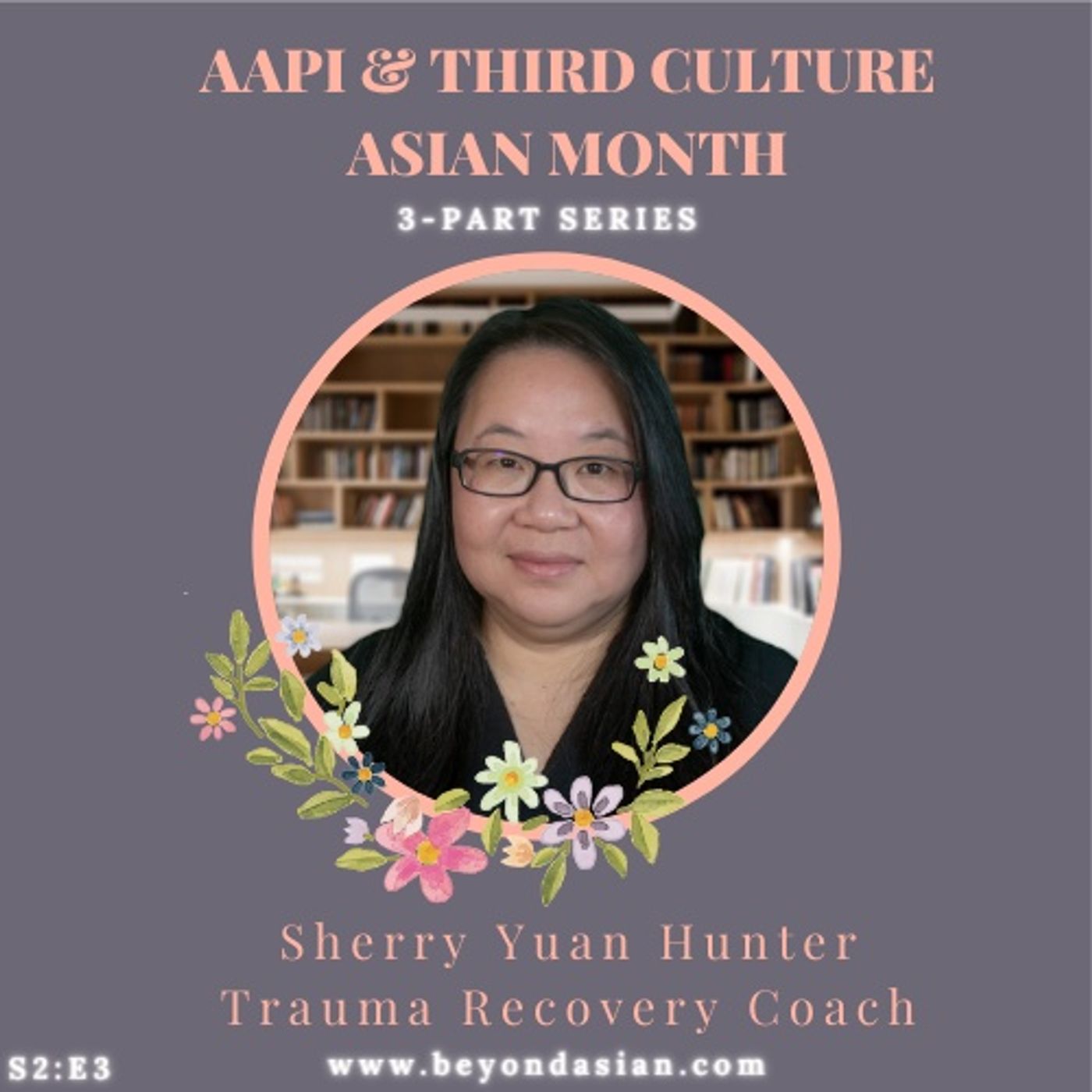
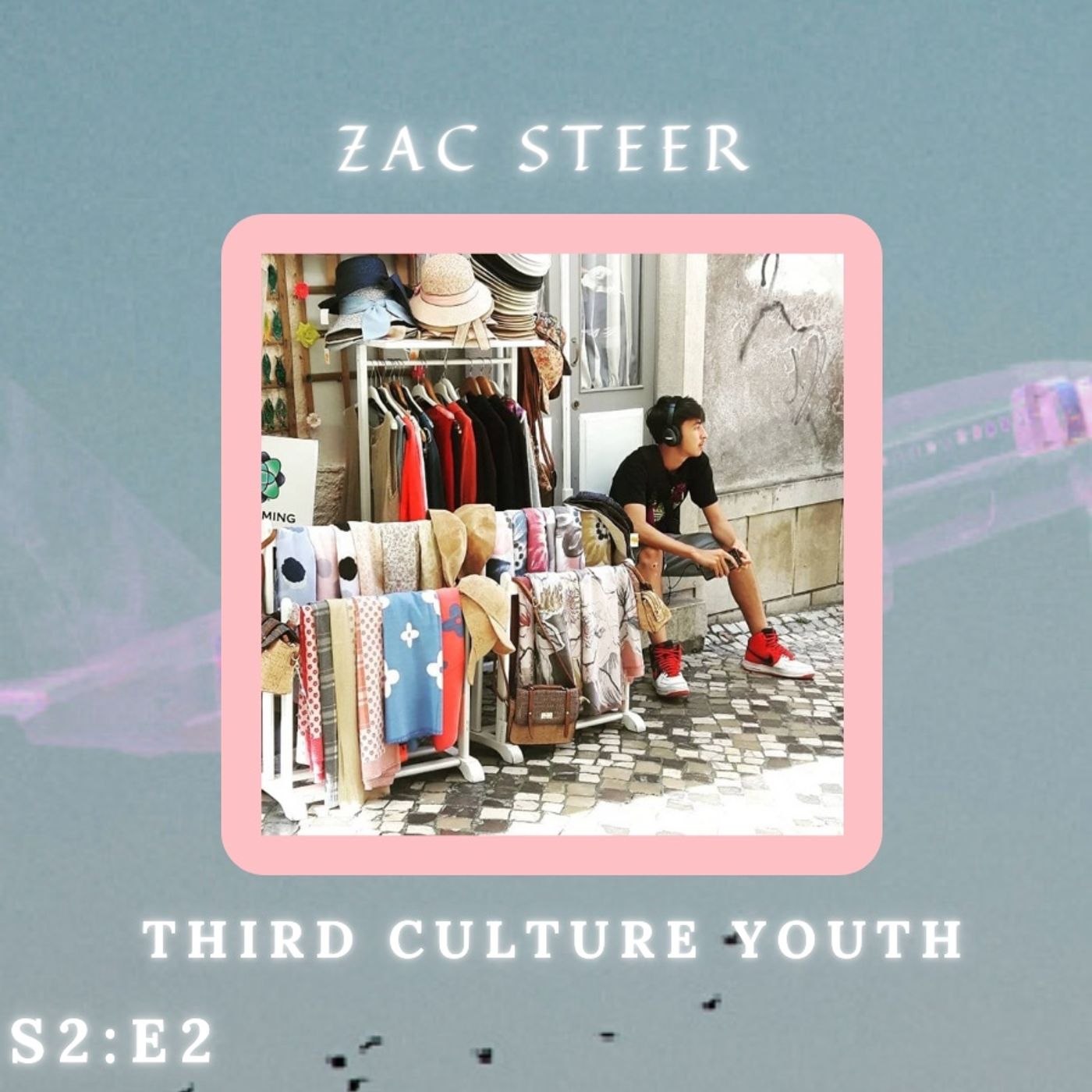
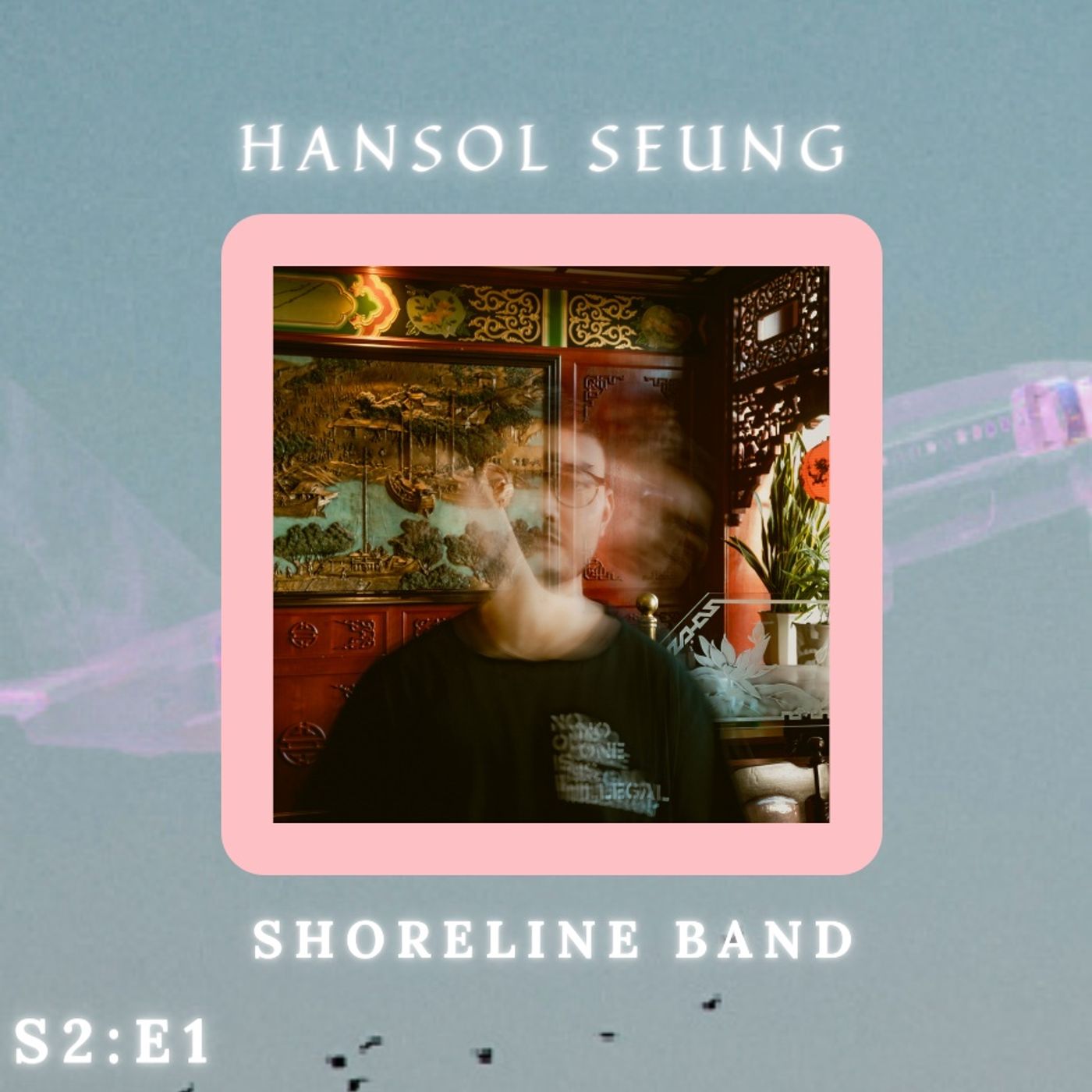




I love it! Thank you for creating this podcast 😍
I've truly been enjoying these stories. They've been opening my eyes to new perspectives and understandings. I'm looking forward to more stories! Keep up the amazing work!